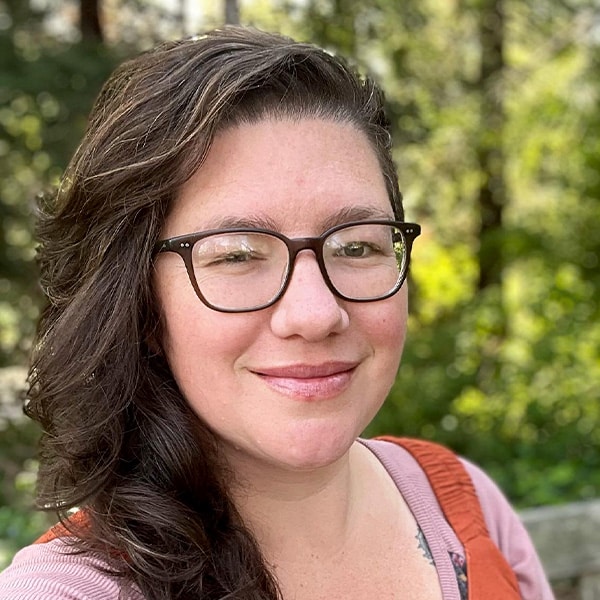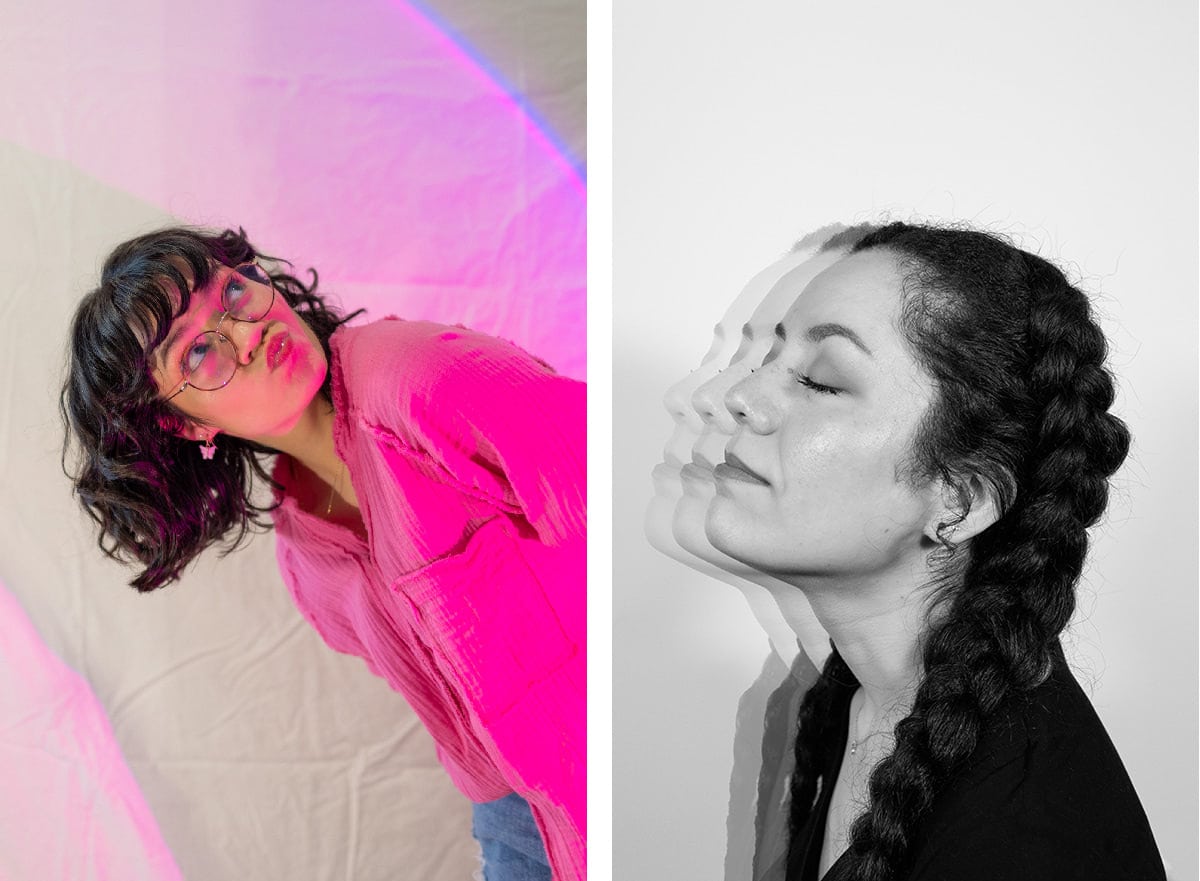PHO 105: Photo Lighting and Planning
Learn how to stage and light your photoshoots like a pro
Planning a photo shoot can be challenging as you struggle to properly prepare while keeping the artistic juices flowing. In this online photography lighting course, you'll focus on the planning and preparation that lead to the successful execution of a photo shoot. You will develop a thorough understanding of different types of lighting, both natural and artificial, and learn how to work within varied shooting conditions. Working with a photography pro, you'll explore ways to effectively stage and style photographs to achieve your desired effect.
About This Course
Project-Based Learning
Classic photography lighting and set up scenarios are explored through photography projects that include natural light, simple lighting setups, loop lighting, backlighting, side lighting, and Rembrandt lighting, location work with strobes or off-camera flash, Avedon lighting, high and low key photography, reflective objects, and shooting in low light.
What Skills Will I Develop?
Students in this course can expect to learn to:
- Plan a photo shoot that requires some coordination and requires human or animal subjects.
- Scout a location and adapt your planning accordingly.
- Utilize lighting modifiers to compensate for issues in ambient and natural light.
- Plan in-studio photo shoots that require continuous lighting and light modifiers.
- Utilize one and two light setups that combine continuous lighting and light modifiers.
- Research and analyze professional examples of photographic lighting.
- Shoot tethered, conducting on-the-spot image edits and file management.
- Conduct a successful outside photo shoot with artificial lighting, on location without power.
- Utilize OCF, studio strobes, or continuous lighting with a generator on location.
- Plan and execute one or more photo shoots with advanced lighting techniques .
- Present a polished portfolio of 5-7 images for a prospective client.
What Software and Supplies Do I Need?
- Computer with a minimum internet connection speed of 512 kbps. Broadband is strongly recommended.
- A digital camera with manual control over aperture, shutter speed, ISO and white balance.
- Basic lighting equipment, with DIY options acceptable.
Course Instructor(s)
The course is taught by the following instructor(s):
 Felicia Kieselhorst
Felicia Kieselhorst
Felicia Kieselhorst is freelance photographer with her own business based in Oakland, CA. Felicia specializes in wedding and product photography, and works in digital and film photography, using primarily Nikon, Hasselblad, and an array of toy cameras.
View all Faculty
Course Outline
Before You Shoot: Planning for Success
Our job as photographers is to blend smooth execution with a creative product. In this first lesson, I'll provide an overview of the logistical preparations you'll need for any photo shoot: how to plan and what to pack. We'll also begin our exploration of lighting setups by looking at how to work with natural light.
In The Studio: Continuous Lighting and Single Light Setups
In this lesson, you'll learn your way around a typical photography studio. We'll look at common lighting equipment used in studios and discuss ways to create your own studio affordably. We'll also focus on creating artificial lighting using simple light set ups.
Using Strobes, Shooting Tethered, and Advanced Lighting
This week, you'll investigate how to use strobe lighting and shoot tethered. By the end of the lesson, we'll be ready to look at some more complicated lighting setups: including loop lighting, backlighting, side lighting, and Rembrandt lighting. You'll have the tools to tackle sophisticated lighting schemes for portrait shoots.
Shooting On Location with Strobes and Off-Camera Flash
Shooting on location can refer to either an indoor or outdoor shoot, as long as you are shooting in an environment. Certain shoot locations are simple; you pack and set up as you would in your studio. What do you do if your location doesn't have power or if your location is outside? You use battery packs, generators, or Off-Camera Flash units, as we'll discover in this week's session.
Assistant Crew and Specialized Lighting
In this lecture, you'll learn how to work with various on-set crew members. Working with other pros such as second shooters, photographer's assistants, and digital technicians can help you achieve your project goals. We'll also continue our exploration of lighting techniques with a look at Avedon lighting, high and low key photography, and reflective objects.
Professional Crew and Shooting in the Dark
This week, we will examine the people who make the magic happen in front of the camera: models, hair stylists, make up artists (MUAs), and prop stylists. Props are something every photographer should master, so we'll discuss the value of good props and conclude our examination of lighting techniques with a peek at the fun technique of light painting.
Frequently Asked Questions (FAQ)
How Do The Courses Work?
Our courses are project-based and instructor-led. In each course you’ll complete a series of lectures, projects, discussions, and critiques designed to stretch your creative skills. Weekly assignment deadlines keep you on track, and with no set-logins or Zoom meetings, you can build your studies around your schedule.
Who Are The Instructors?
Our courses are developed and taught by our industry-leading faculty of creative professionals. This means that you’ll learn in-demand skills, get feedback on your work, and build a portfolio of creative work. View our Student Gallery for featured student projects.
When Can I Start?
Classes start January, April, and August, and this course is completed in a 15-week term. College credit from this course can be applied to a range of Degree and Certificate programs at Sessions College. You can enroll in this course on an individual basis or as part of a program.
Explore our Programs: Bachelor's Degree | Associate Degree | Undergraduate Certificate
How Do I Register?
To register for a program, complete our program application. To register for this course on an individual basis, please contact our admissions team at admissions@sessions.edu. An Admissions Advisor will contact you to setup your enrollment.
| Course Tuition and Fees | |
|---|---|
| Tuition | $300/credit |
| Registration Fee* | $200 |
| Total Course Price | $1100 |
Registration fees are nonrefundable after 5 days from enrollment.
Is Sessions College Accredited?
Yes. Since 2001, Sessions College has been accredited by the Distance Education Accrediting Commission (DEAC). The Distance Education Accrediting Commission is listed by the U.S. Department of Education as a recognized accrediting agency and is recognized by the Council for Higher Education Accreditation (CHEA).
RELATED PROGRAMS AT SESSIONS COLLEGE:






















